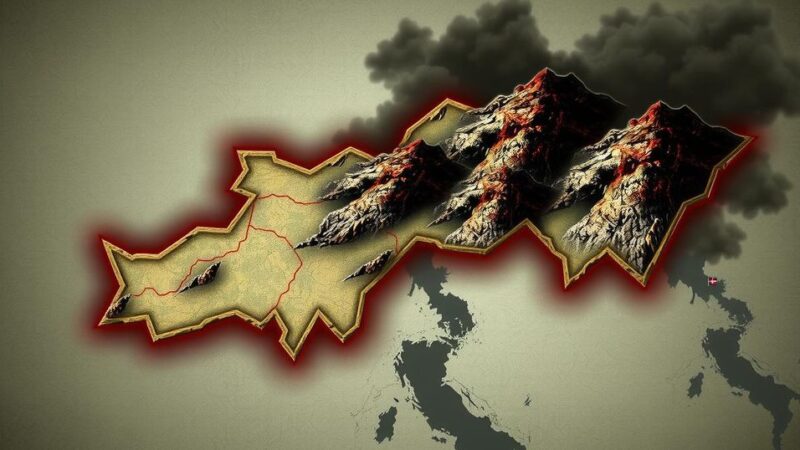Palestinians and Arab states reject President Trump’s Gaza takeover proposal, citing violations of rights and potential forced displacement of the local population. Palestinian President Mahmoud Abbas and Hamas express strong condemnation, emphasizing Gaza’s status within the State of Palestine. Arab nations, including Saudi Arabia and Egypt, join the opposition, maintaining that peace in the region hinges on establishing a Palestinian state.
Palestinians and Arab nations have vehemently rejected President Donald Trump’s proposal to take control of Gaza and permanently resettle the 2.1 million Palestinians residing there. Palestinian President Mahmoud Abbas emphasized that such a plan infringes upon the rights of the Palestinian people, stressing that Gaza is an essential part of the State of Palestine, and forced displacement constitutes a serious violation of international law.
Hamas condemned the proposal, arguing that it would exacerbate tensions in the region. Other Arab nations, including Saudi Arabia and Egypt, also expressed opposition, with Saudi Arabia insisting that normalization of ties with Israel is contingent upon establishing a Palestinian state. Egypt reiterated its stance against forcibly relocating residents of Gaza, advocating instead for reconstruction efforts without displacing the local population.
This backlash follows a fragile ceasefire amidst continuing unrest in Gaza, where a conflict has resulted in significant casualties and destruction. Trump had proposed the complete takeover of Gaza to create a development project likened to a “Riviera,” displacing the existing Palestinian population, which he believed would be accommodated in neighboring countries.
In response to criticism, Trump claimed neighboring nations would eventually accommodate Palestinians, disregarding their earlier objections. Israeli leaders, including Prime Minister Netanyahu, hailed Trump’s plan as potentially transformative for the region, urging attention to the proposal’s implications.
Nonetheless, Palestinian leaders, including Abbas, firmly rejected the plan, insisting that peace requires recognition of a Palestinian state and their right to sovereignty. Hamas also characterized Trump’s intentions as aggressive, warning that his proposal would threaten regional stability and violate fundamental rights.
Palestinian voices from within Gaza echoed this sentiment, expressing a preference to endure hardship rather than be forcibly displaced. The plight of Palestinians and their fears of repeating historical displacements, akin to the Nakba of 1948, are central to their resistance against any such proposals.
International law explicitly forbids the forced transfer of populations. Western governments have raised alarms about any displacement, with France highlighting the proposal as a severe violation of international norms and detrimental to future peace efforts. The UK also reaffirmed its commitment to a two-state solution, wherein Palestinians would have the right to live and prosper in their homeland.
The article centers on the backlash against President Trump’s plan for the United States to take control of Gaza and resettle its Palestinian population. The plan has sparked widespread condemnation from Palestinian leaders and Arab nations due to fears of violating rights and potential displacement. This response occurs against the backdrop of a long-standing conflict involving significant loss of life and displacement of people in Gaza, adding to the sensitivity surrounding proposals for resettlement.
In conclusion, the proposal by President Trump to take over Gaza has faced strong opposition from Palestinian leaders and Arab states alike. The overarching themes of the backlash include concerns over sovereignty, potential violations of international law, and fears of displacing the Palestinian population. The need for solutions that respect the rights of Palestinians and uphold international standards remains a priority for all parties involved.
Original Source: www.bbc.com






